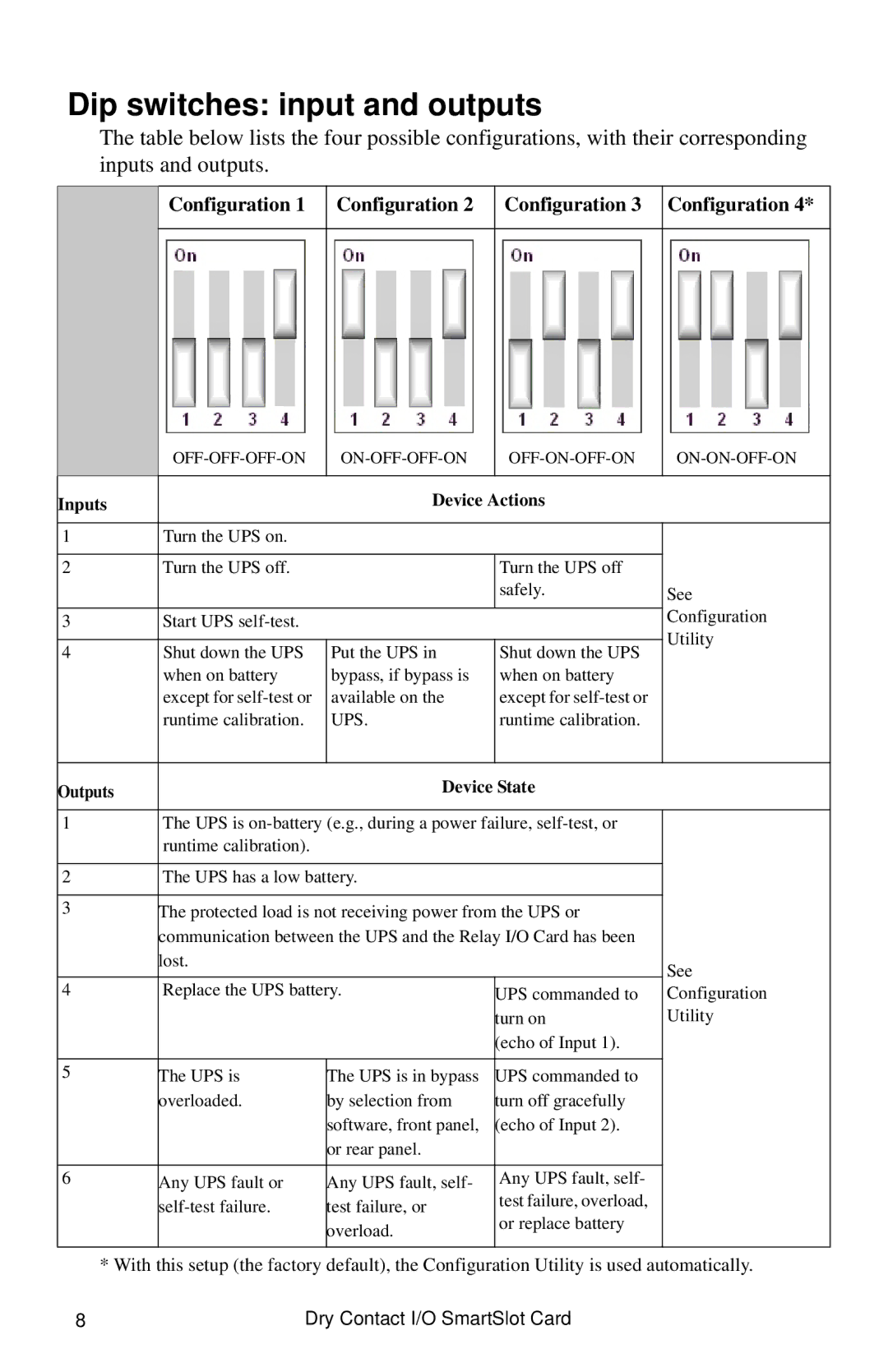
Dip switches: input and outputs
The table below lists the four possible configurations, with their corresponding inputs and outputs.
Configuration 1 | Configuration 2 | Configuration 3 Configuration 4* |
Inputs |
| Device Actions |
| ||
|
|
|
|
| |
1 | Turn the UPS on. |
|
|
| |
|
|
|
|
| |
2 | Turn the UPS off. |
| Turn the UPS off |
| |
|
|
| safely. | See | |
|
|
|
| Configuration | |
3 | Start UPS |
|
| ||
|
|
|
| Utility | |
4 | Shut down the UPS | Put the UPS in | Shut down the UPS | ||
| |||||
| when on battery | bypass, if bypass is | when on battery |
| |
| except for | available on the | except for |
| |
| runtime calibration. | UPS. | runtime calibration. |
| |
|
|
|
|
| |
Outputs |
|
| Device State |
| |
|
|
| |||
1 | The UPS is |
| |||
| runtime calibration). |
|
| ||
|
|
|
| ||
2 | The UPS has a low battery. |
|
| ||
|
|
| |||
3 | The protected load is not receiving power from the UPS or |
| |||
| communication between the UPS and the Relay I/O Card has been |
| |||
| lost. |
|
|
| See |
|
|
|
|
| |
4 | Replace the UPS battery. | UPS commanded to | Configuration | ||
|
|
|
| turn on | Utility |
|
|
|
| (echo of Input 1). |
|
|
|
|
|
|
|
5 | The UPS is |
| The UPS is in bypass | UPS commanded to |
|
| overloaded. |
| by selection from | turn off gracefully |
|
|
|
| software, front panel, | (echo of Input 2). |
|
|
|
| or rear panel. |
|
|
|
|
|
|
|
|
6 | Any UPS fault or |
| Any UPS fault, self- | Any UPS fault, self- |
|
|
| test failure, or | test failure, overload, |
| |
|
| or replace battery |
| ||
|
|
| overload. |
| |
|
|
|
|
| |
|
|
|
| ||
* With this setup (the factory default), the Configuration Utility is used automatically. | |||||
8 |
| Dry Contact I/O SmartSlot Card |
| ||
